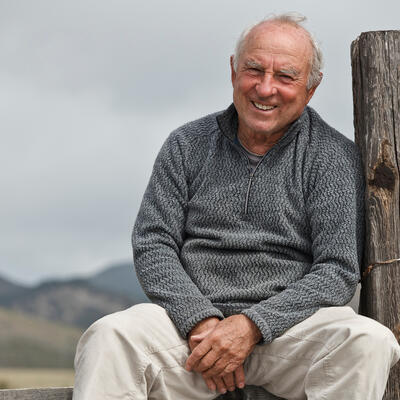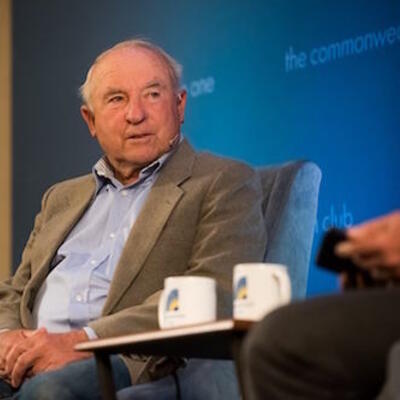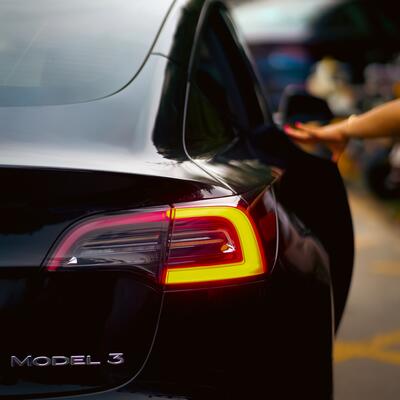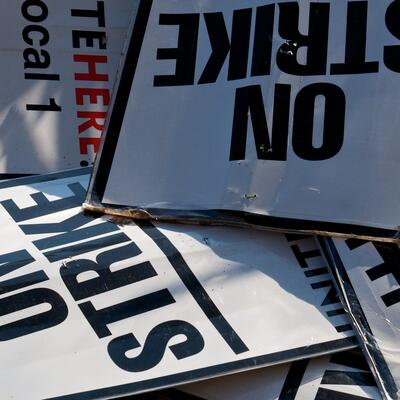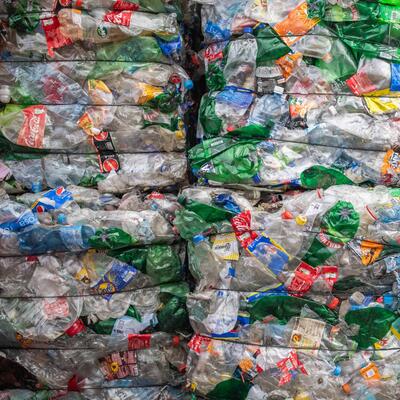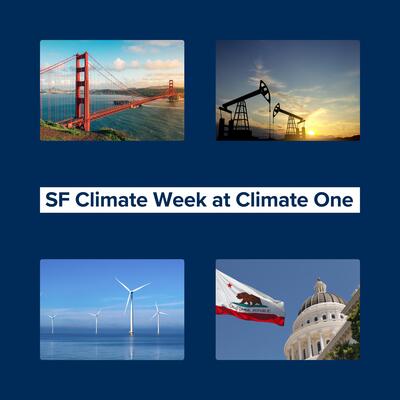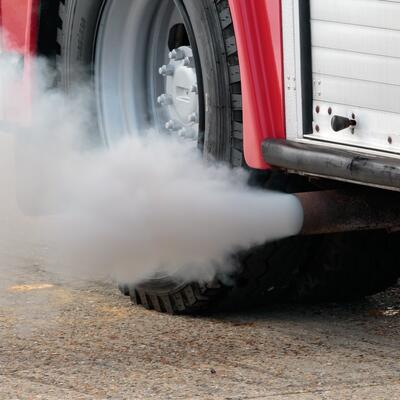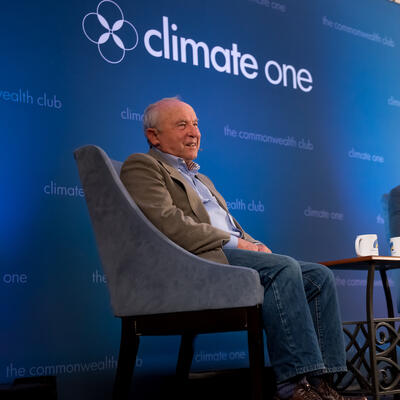
Yvon Chouinard: Founding Patagonia and Living Simply
Guests
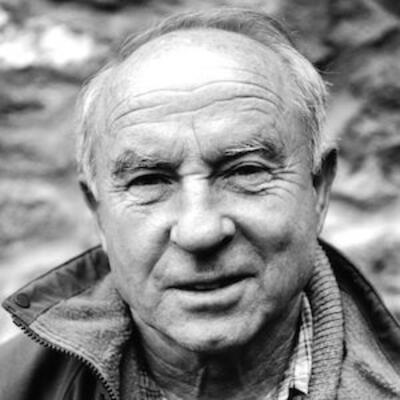
Yvon Chouinard
Summary
The explorer, climber, surfer and founder of sporting goods company Patagonia, Inc., has spent a lifetime welcoming adventure – and risk - of all kinds.
Yvon Chouinard, Founder and Owner, Patagonia
This program was recorded in front of a live audience at the Commonwealth Club of California on October 27, 2016
Full Transcript
Greg Dalton: From the Commonwealth Club of California, I'm Greg Dalton. And this is Climate One, leading the conversation about America's energy, economy and environment. On the show today we’re going on an adventure with the legendary explorer and entrepreneur, Yvon Chouinard. The pioneering founder and owner of Patagonia is known for charting his own path through the wilderness and through business rather than pushing customers to buy new jackets and gear. His company helps people fix buttons and zippers and collects worn-out clothes for recycling. In an industry not known for its social and environmental responsibility the company is a leader in understanding the impacts of its operations on people and the planet and works hard to do no unnecessary harm. All that effort drives up costs, but Yvon Chouinard doesn't give a dang. As a private company the only shareholder sits across from him at the dinner table every night. Yvon Chouinard and his wife Melinda, spend about half a year in the mountains of Wyoming far from corporate headquarters in the California coast north of Los Angeles. He just published his revised and updated memoir, “Let My People Go Surfing: The Education of a Reluctant Businessman.” Please join me in giving a round rousing welcome to Yvon Chouinard.
[Applause]
Welcome Yvon Chouinard.
Yvon Chouinard: Thank you.
Greg Dalton: Let’s begin on an important evening in your life. 1956, it’s your high school prom and what are you doing?
Yvon Chouinard: [Laughing]. I'm down at the L.A. River bottom down there gigging frogs and catching crawdads. [Laughter]
Greg Dalton: So rather, when everyone else is at the dance, you're in the river chasing frogs.
Yvon Chouinard: Yeah, I was never a dancer actually.
[Laughter]
Greg Dalton: Well, in 1968 you took a trip that you say shaped your life. You drove to a 10,000 mile trip down the Pan-American Highway, it was dirt then. So tell us about that trip and how it shaped your life.
Yvon Chouinard: Well, you know, I've been on a lot of different expeditions and trips. But the longer they are, the more you get something out of them. And this is a six month trip. And so we left Ventura, California with an old van this is Doug Tompkins and myself and some other folks. And we loaded the van up with surfboards and skis and climbing equipment. Bought an old Bolex 16mm camera and took off surfing all the way down to Lima. Went to Chile and climbed volcanoes and skied down on them, that’s where I learned to ski.
[Laughter]
We crossed over the Andes and went over to and climb Fitz Roy, a real famous mountain that had been only climb twice and we did a new route on it. And we made a film on the whole thing and that's when I fell in love with that country, the southern end of South America called Patagonia. And it affected Doug Tompkins a lot and myself and that's why I named my clothing company Patagonia because I wanted to make clothing for those kind of conditions, you know, like Cape Horn and wild mountains and wild weather.
Greg Dalton: So you founded an outdoor gear company. You got into clothing and at some point, you realized that you were running a business, but you didn't want to be a businessman.
Yvon Chouinard: Well, I never wanted to be a businessman. I was a craftsman and I was a climber. And I just, every time I’d go into the mountains I’d have ideas in how to make the gear better. The gear was pretty crude in those days it was all made in Europe. And so I just got myself a forge and an anvil and a book on blacksmithing.
And I taught myself how to blacksmith and that led to making these pitons and eventually ice axes and crampons and all the gear for mountain climbing. And never did it thinking that it was a business. It was at first it was just making the stuff for myself and friends and then friends of friends. And pretty soon I’m making two of these pitons an hour and selling them for dollar and a half each. Well, not too profitable, right.
[Laughter]
But, yeah, I kind of backdoor becoming a businessman. Because this is in the 60s and, you know, businessmen were all grease balls in the 60s. You know, this is a counterculture that we’re in and we didn’t respect business in fact, they were the enemy. And so, you know, one day later on I kind of woke up and discovered, oh my God I am a businessman. And that's when I decided I better find out what I'm doing and started reading a lot of books on business. And basically try to create a business that we wanted to come to work in. All of us, I mean it wasn’t just me, but all of us we’re all dirtbags. And so that's what we did.
Greg Dalton: And explain that term dirtbags has a particular meaning for people who.
Yvon Chouinard: Well actually that term dirtbag, now you hear it all the time but it actually came from Yosemite.
Greg Dalton: People who are out in nature a lot. 1981, you had a near-death experience in an avalanche in China. One person died others, you survived. Tell us about that near-death experience in 1981 in China.
Yvon Chouinard: Yeah. I used to go on a lot of, I'm kind of a serial climber, you know, I’d spent two years just climbing cracks. It's been five years as climbing big walls like in Yosemite. I spent years and years learning ice climbing. In fact, writing a book about it. Then I did a bunch of expedition climbing on, you know, the Himalayas and Antarctica and places like that. And one trip to Tibet, there was four of us coming down from camp two on this 25,000 foot peak. And we set off an avalanche and we were roped up together and we went over a 30-foot cliff. It was, we went about 1,500 feet. Went over 30-foot cliff and the avalanche stopped and we’re trying to untangle ourselves from all the ropes and stuff and we’re thinking, oh my God we’re alive. And but the avalanche started again. And at that point we knew that just a few hundred feet below there was a 300-foot cliff. So we knew we were dead. And we accepted the idea that we’re dead. We’re gonna die.
And the avalanche stopped 30-foot from the cliff and one of the guys was, had a broken neck and he was dead. Another friend had a broken back. I had broken ribs and a concussion. I had no idea where I was. And it kind of changed my life in that, I've had a lot of close calls, near-death experiences, but always afterwards you go around sniffing the flowers and be really happy to be alive and everything. But after that, all of us were deeply depressed for several months afterwards. And I’ve read stories about people that have kind of died and come back. And you resist coming back. And in fact, it's taught me that there's nothing to fear about death itself. It's pretty pleasant feeling. And since then I've first of all I really scared the heck out of my family and I realized I don't want to do that again. I really cut back on that kind of climbing, but also have an attitude that, you know, when my time comes I’m gonna go out pretty peacefully.
Greg Dalton: We have a question from Facebook for Yvon Chouinard, founder and owner of Patagonia. Cameron Depetro asks, “You’ve said that an adventure isn’t an adventure until something goes wrong. Do you still believe that to be true?”
Yvon Chouinard: Yeah, I mean every definition of adventure in the Webster's has risk whether it's a financial venture or whatever. Adventure travel, that’s a oxymoron. They make sure that you're not going to get into any trouble.
[Laughter]
Greg Dalton: Sign those release forms.
Yvon Chouinard: So, yeah, and, you know, if you really search out adventure you have to purposely leave out some gear or you have to purposely stick your neck out. Otherwise you’re not gonna have an adventure. If you figure it out to an nth degree, it’s not gonna happen. And we searched out adventure when I was a kid. We always dared it, you know, dared it to happen. So we can fight our way out of it and, you know, that’s when you get the most value out of the experience.
Greg Dalton: Do you feel that about your own children having adventure too?
[Laughter]
Yvon Chouinard: Of course not.
[Laughter]
I want them to be as safe as possible. I don’t wanna hear about it.
[Laughter]
Greg Dalton: Fair enough.
Yvon Chouinard: In fact the first time my parents knew I was a climber, they were, this is in 1964, they were watching television. And on the news program there’s a helicopter coming by the North American wall of El Capitan. And then it zooms in on these guys hanging from hammocks underneath this big overhang 2,000 feet up and one of them is their son.
[Laughter]
They always thought when I said I was going climbing that I was going hiking.
Greg Dalton: So what was it like when you got home if they found out about that?
Yvon Chouinard: They were aghast that’s for sure.
Greg Dalton: Ten years after that avalanche in China, your company had a near-death experience. Why did that happen and how did you turn it around?
Yvon Chouinard: Well, we were growing our business in the normal ways. We were adding more wholesale accounts.
We were building more retail stores and the market wanted our products. And so we were growing 50% a year. And, you know, you can’t grow a business with 50% growth year after year on retain earnings. At some point you're gonna crash. And at the same time there was a recession and the banks wouldn’t lend us any money. We had bought inventory for another 50% growth and as it turned out we only had a 30% growth. Well, that’s a huge difference. And we got into a really deep financial trouble. I mean so deep that I could hardly get out of it. My accountants introduced me to the mafia, who ironically wanted 28% interest which is what you pay on your credit cards now.
Greg Dalton: Yeah, yeah.
Yvon Chouinard: That’s mafia.
[Laughter]
And, you know, I finally got like borrowing money from friends and friends of friends and stuff like that. But it also was a wake-up call that I was doing business just like everybody else. I was growing for the sake of growing and not thinking about what I was doing. And that forced us to sit down, all of us in the company and ask ourselves why are we in business. And in fact we went, I took all the most important people in the company. We went down to Patagonia and we walked around in the wilderness and we’d sit down for three, four hours a day and talk about, okay, why are we in business? What are we trying to do? What are our values?
And that's what eventually became this book “Let My People Go Surfing” and it changed the whole way we did business. And what we did is create a business that we wanted to come to work in. And it's pretty different from a lot of other companies, I can tell you that. And it works.
Greg Dalton: Lots of companies talk about their values. They have them posted by the water cooler et cetera. But it's a different thing to live them. So how do you operationalize them and do you go back to them, you know, keep coming back to them because all CEOs and companies say they have values.
Yvon Chouinard: Well, for instance, our management. I mean the name of my book is “Let My People Go Surfing” because we have a policy that if your child is sick, go home and take care of them no matter what. And I don't care when you work as long as the job gets done. And if the surf comes up, drop everything; go surfing if you're a surfer. If you have to wait till next Thursday at 2:00 to go surfing, you’re like Trump would say, you’re a loser.
[Laughter]
So, you know, none of us liked authority. We really disliked authority and none of us wanted to tell other people what to do. So our management system is kind of like an ant colony. You know an ant colony doesn't have any bosses. The queen just lays there and lays eggs. There's no bosses in ant colony but every single ant knows what his job is and gets it done and they communicate by touching feelers and that's about it. And so in in Native American societies, the chief is not the richest guy in the tribe.
He was the best orator because the tribe made decisions on consensus. And that’s the opposite of how our government works. Our government works on compromise, which never solves the problem. It cuts the baby in half, so to speak. And to build consensus, you have to have leaders that can convince everybody that we’re going to go in this direction.
And it's kind of like a SEAL team. If one guy in the SEAL team says, “Oh, I don’t know about this thing we’re going on. I think I’m gonna just hold back a little bit.” It doesn’t work. Every single person in that SEAL team has to agree this is what he's gonna do. And if the leader gets killed, the next guy takes over. If he gets killed, the next guy takes over. It’s leaderless really.
And that's our management style. And so I hire very independent, very self-motivated people who believe in what we’re trying to do and I leave them alone. And in fact I had a psychologist came one time studied our company and said, “gee, I got to tell you, we did psychological profiles in a lot of people in order to see if make sure the right brain people work in a right brain jobs and stuff like that. But so I got to tell you, your people, are so the most independent people I’ve ever seen in a company. In fact, they’re really unemployable anywhere else.”
[Laughter]
Greg Dalton: Good thing you gave them jobs. If you’re just joining us, our guest today at Climate One from the Commonwealth Club is Yvon Chouinard, the owner and founder of Patagonia. I'm Greg Dalton. We have another question from Facebook, from Ryan Parker who asked, “Which was a greater accomplishment, climbing El Capitan or founding three global companies?”
Yvon Chouinard: Those are really different. I’ve only, it’s only dawned on me recently the effect that my companies have had in society. I never really thought much about it but I know we’re a relatively small company, but we have incredible amount of social power around the world. And it's only dawned on me recently that we have this and therefore, we probably have the responsibility to use that power and not just to hire other people to do the right thing and stuff. So, it’s changed the way our company operates. Instead of just giving money away to a bunch of NGOs which we still do, but we're doing a lot more stuff ourselves. So I guess I'm, yeah, I’m pretty stoked about, you know, the climbs I did on El Cap, you know, they were really important for me at that time. It built a character that I am now probably but I'm starting to be pretty proud of the company too.
Greg Dalton: Lot of moral authority, deep following the Patagonia has. And there is one time where you were approached by Walmart which is a huge corporation, villainized by a lot of probably Patagonia followers. So tell us about dancing with the devil.
[Laughter]
Yvon Chouinard: Well a few years back, the Walton family told the CEO that they wanted a green Walmart. Basically make it more environmentally responsible. Well, the CEO had no idea what that meant. So we sent a team of I think seven or nine people to Ventura to talk to us about what it means. And also they realized that they couldn't do what they want to do without getting other large companies all together doing the same thing so that there was a level playing field. And so they sent a letter out to, oh I don't know, a lot of the largest companies in America to come to New York to talk about greening their companies and doing a new way of doing business and stuff, and nobody came. So they got hold of us and said will you cosign a letter, Walmart and Patagonia inviting these people to New York, and everybody came.
[Laughter]
So we started a sustainable apparel coalition which is kind of bogged down in bureaucracy. But the ultimate goal is to basically give information to consumers so that they know what they're buying. So that a young person buying a pair of jeans can look at five pairs of jeans on a table and zap the barcode and it’ll tell him how each jean is made and it’ll have a grade as to which one is made more responsibly. That's the ultimate goal. And I don't know when that's gonna happen, but.
Greg Dalton: Do you think the sustainable purchasing, green living, is that legitimate can these corporations be a force for the sustainability changes that you want to see or is that just greenwashing?
Yvon Chouinard: Well, it has to be forced by the consumer. I don't think corporations are going to change on their own. Public corporations, I mean Robert Wright wrote a book on capitalism. He devotes two chapters to why public corporations can never be responsible. And, but, you know, all of us here are no longer citizens, we’re consumers. That's our brand now. And, but you know what, I used to think that maybe designers had the most power because they decide what color of car you’re gonna drive, you know, what clothes you’re gonna wear and stuff. But, you can just say no. That's pretty powerful.
And so we have the power and corporations will only change when we force them to. And it’s the same thing with government. I’ll tell you a little story about mountain guiding. There’s two types of mountain guiding. One is democratic, where you're guiding somebody up to Grand Teton, which is a pretty safe mountain. And the climate, I mean the client starts freaking out. So you pull out your harmonica and you play your harmonica a little bit. You calm him down and you kind of, you know, take your time and you get up. Very effective way to guide on a non-difficult mountain.
Let's say you’re guiding on the Matterhorn and you know you're 60 years old, a guide and you got a family and, you know, you remember the client is always out to kill you.
[Laughter]
And so on a mountain like that it’s rotten rock, it’s thunderstorms every afternoon. And the client freaks out, the guide screams at him, pounds on him. Calls him names, tugs the rope and gets them to the top. So what happens is the client is more afraid of the guide than the mountain.
[Laughter]
And that's basically how we have to treat our government.
[Applause]
Greg Dalton: If you’re just joining us, we’re talking today with Yvon Chouinard, founder and owner of Patagonia and author of the new revised and updated memoir, “Let My People Go Surfing: The Education of Reluctant Businessman.” I'm Greg Dalton. We’ll go to our lightning round now which is a series of quick brief answer questions, answers for Yvon Chouinard. First one is, please name a living business leader for whom you have great respect?
Yvon Chouinard: Oh, you got me there.
[Laughter]
Greg Dalton: Okay. Maybe this one will be – name a living politician for whom you have great respect?
[Laughter]
A little respect?
Yvon Chouinard: Yeah, I think Bernie is my man.
[Applause]
Greg Dalton: Name one brand of clothing other than Patagonia that you have in your home?
[Laughter]
Yvon Chouinard: Oh boy. I got some old Levi's going way, way back I guess.
Greg Dalton: True or false. Patagonia has a higher gross profit margin than its competitors?
Yvon Chouinard: I think so.
Greg Dalton: That means you could really afford to donate 2% for the planet to avoid two degrees of human caused global warming.
Yvon Chouinard: Well, there are ways to do more than one percent that, well let's say we do more than one percent, but it's –
Greg Dalton: Do a lot more than those –
Yvon Chouinard: Kind of under the table type stuff.
[Laughter]
I can’t really talk about it.
[Laughter]
Greg Dalton: Back to those mafia guys. Many Patagonia customers spend more time driving around suburbia feeling earthy than actually getting out into nature?
[Laughter]
Yvon Chouinard: Well, yeah we’re selling more and more to just kind of ordinary people, yeah.
Greg Dalton: When is the last time you dropped in on an epic wave?
Yvon Chouinard: Well, I know exactly. It was last winter but then had to get a rotator cuff operation.
[Laughter]
And it’s been six months and November 1st is six months and that's when the doctor says I can start surfing again.
Greg Dalton: November 1st and on November 9th you turn 78, I believe. So let’s give him an early birthday –
[Applause]
Yvon Chouinard: Nothing to clap about being 78.
[Laughter]
Greg Dalton: We’re talking with Yvon Chouinard at Climate One from the Commonwealth Club. True or false. You could claim residency in Wyoming, which has no state income tax. Instead you choose to pay taxes in California, a high tax state?
Yvon Chouinard: No, I believe in taxes. I'm happy to pay my taxes. And when I see corporations like General Electric who paid no income taxes a few years ago, I think it’s pretty sad. And in fact I believe in taxes so much that we tax ourselves, our 1% for the planet taxes, we tax ourselves. And the best part is we decide where it goes.
Greg Dalton: You recently converted Patagonia into a B Corporation, which is a new type of corporate structure –
[Applause]
– that allows companies to seek social and financial returns without worrying about getting sued by investors for not maximizing profit at the expense of all else. So the question is, you did that to ensure that your two children will inherit the company, or other future owners won't change the company's values?
Yvon Chouinard: Yeah, actually they don't inherit the company but it goes into a trust. And the law, the way it is forces every company to become public. And, you know, if the trust, if myself and my kids die, the trust has eight years to divest 80% of the stock because the law doesn't want you to own more than 20% of stock in any one company, a foundation law. And it also forces you to sell to the highest bidder. You can't just sell your company to a close friend for two dollars. So the highest bidder for us of course would be going public. Well, being a B Corp., you don't have to do that. You can establish what your values are and you put that in your corporate charter and you can avoid that. So hopefully the company can keep going with the same values for a long, long time.
Greg Dalton: Important new category of company structure. True or false for Yvon Chouinard. Howard Hughes once employed you as a private detective to keep track of his girlfriends?
Yvon Chouinard: Yeah.
[Laughter]
Yeah, that was my, the only other job I've ever had.
[Laughter]
Greg Dalton: Alrighty, that’s the end of lightning round. Let’s give a round of applause to Yvon Chouinard for getting through that.
[Applause]
Greg Dalton: You had a moment when you looked closely at organic cotton and got surprised by what you found. What was that?
Yvon Chouinard: Well, it started with a retail store that we open in Boston. We got an old building and we retrofitted it opened it up, brought in all the clothing. And within three days my employees are complaining they are getting headaches. And so I brought in a chemical engineer and he said, “The problem is your ventilation system is recycling the same air and you’re poisoning your employees.” I said, wait a minute, where is the poison coming from? He said well it’s all on the cotton clothing that you, this is before we did organic cotton. It’s on all of cotton clothing that you have, it's formaldehyde. And formaldehyde is used to have stay-press clothing, no wrinkling. It helps the shrinkage and stuff. And it's super toxic stuff. And then when I heard that, I said oh my god, I had no idea because, you know, we just ordered cloth from a salesman, he had come by with a big book on and say well give me 10,000 yards of this and 5,000 yards of this and I never thought about how it was made.
And that was a wake-up call. And that's when we decided to start asking a lot of questions about what we are doing. And, you know, first when we ask, well, okay, so what's happening with cotton. And so we went around and found out we did trips to the Central Valley and we’ve visited cotton farms and we got sprayed by crop dusters and found out the cancer rates 10 times above normal in San Joaquin Valley there. And I said I don’t want to be in business if I gotta use this stuff.
So thankfully I learned about organically grown cotton. And then we switched over and then, you know, then we started asking more questions like, well, how about dyes? What happens, are dyes toxic? I didn't know, I always just bought cloth already dyed. It was a long, long process and cleaning up my entire supply chain all the way to the point where I know where now I have to go to our cotton farmers and say it's not enough for you to grow organic cotton, now you have to grow it regeneratively. Which means the difference between organic and regenerative farming is regenerative builds topsoil and captures carbon.
So that's way beyond organic. And so anyway, it led to us cleaning up our supply chain as much we possibly could. Every time we learned we were doing something wrong, we changed it.
Greg Dalton: You’re passionate now about food. You formed Patagonia Provisions. So tell us about your passion for food and how you see food as a new avenue for the social change and concerns about climate change that you’re talking about.
Yvon Chouinard: Well agriculture is the biggest villain in climate change. And therefore it’s probably the best opportunity we have to do something about climate change. So growing cotton organically doesn't do the world any good it still, you know, yeah, for a brief period of time it pulls carbon out of the air, sticks it in the ground and then they plow and it releases carbon again, so it’s an endless process and it loses topsoil. You know, the organic foods that you buy in your supermarket, most of it comes from Mexico. Grown in Baja California out in the desert out there and is being forced to grow there, it uses fossil water that’s millions years old. It's probably 20 years left of the water there never be replenished again. And, you know, they pay the workers eight bucks a day and lock them up at night so they don't escape. But it's organic. And so I said, I don’t want it just, you know, our mission statement the third part of our – the second part of the mission statement cause no unnecessary harm. Well, I want to go beyond that, I want to do good.
And so if I can get our people to grow cotton regeneratively, in other words, no more plowing, using cover crops, capturing carbon and leaving it in the soil, then it not only cause less harm, but it actually does good. And I think there's a lot of books out now, several books out on the idea of capturing that carbon that were releasing through agriculture, through different grazing practices. And it's pretty exciting; it's the most hopeful thing I've heard. In fact we’re partners in a bison farm in South Dakota and we poked 250 holes in this pasture out there, pasture land to see how much carbon we’re capturing compared to the neighbor’s property which has cows. Well, the bison property captures 9 tons more per hectare so 2.2 acres, 9 tons more a year than the neighbor. And why is that? Well, you know, the bison have little sharp-hooves; every time they walk they make little divots. When it rains, water collects in the divots. When a cow walks, it’s got these big flat feet, stomps the ground down. When it rains the water runs off and those little divots they crush the grass and stick it down under the ground. And so it’s making its own cover crop, its own compost. And bison roam around; they’re never in one spot like cows are.
So it's a much better animal to put on the plains than a cow is. So University of California Berkeley and Santa Barbara have done studies on grassland and they figure that if we change agriculture around the world, we could capture more than all the carbon that we’re releasing into the air from everything that we do. But that means getting away from this industrial agriculture which is...John Jeavons at Ecology Action up here in Willits. He figures we have 20 to 30 years more of topsoil. And before we run out of topsoil, we’re gonna run out of water. And regenerative agriculture, organic agriculture uses 20% of the water of regular agriculture and you can produce more food. So I'm really excited about that.
You know, I mean the reason I was in a clothing business I thought I could change the industry and get other clothing companies to by doing the right thing, proving that it’s good business and that they would follow what we’re doing. And, you know what it’s not gonna happen. I watch all these companies pick the low hanging fruit and then back off. So anyway, I’m pretty excited about food because I think we need a revolution in society. It’s not gonna come from any other way except from agriculture. I really believe that. People really care about, they don’t care about how cotton is grown in Turkey but they really care about food. And so I want to be part of that revolution. I want to be in my blacksmith shop, sharpening the guillotines.
[Laughter]
Greg Dalton: This is Climate One. I’m Greg Dalton. If you're just joining us, we’re talking about sustainability with Yvon Chouinard, founder and owner of Patagonia and author of the new revised memoir “Let My People Go Surfing: The Education of a Reluctant Businessman.”
Let’s go to our audience questions for Yvon Chouinard.
Male Participant: One of the big criticisms I hear about Patagonia is called Patagucci by a lot of the dirtbags in Yosemite. And I'm curious, I'm sure you've heard it as well. What is your response to a lot of people that you would have hang out with that have this criticism against the company you run?
Yvon Chouinard: Well, you know, it's the same criticism with organic foods. A lot of people say they can't afford organic food because it’s more expensive. And in fact, when you buy a hamburger at McDonald's it’s cheaper than if you bought all those ingredients separately and that's because, you know, food is a commodity that's highly subsidized. And the efforts that we put into making our clothing is gonna make them cost more than what you can buy at Costco or Walmart. But it is the same price as North Face or Marmot or any of those companies. And, you know, I’ve had people say why don’t you make a less-expensive range of clothes so that everybody can wear it. I can't do it. Organic cotton cost three times more per pound than regular cotton. Regular GMO, you know, all non-organic cotton is all GMO cotton. So I can't do it. I number one, I really believe that all of us should be buying less but buying better. My father was a tradesman and he taught me that when you buy a tool, you buy the absolute best tool you can get and keep it for the rest of your life. And that's much better than buying a cheap tool having it break, buying another one, have that break. So that’s just the way it is.
Greg Dalton: Let’s go to our next question here for Yvon Chouinard.
Female Participant: Hi. I'm aware of land purchasing that you and Doug Tompkins were doing in Argentina and Chile. And I really admire what you are doing vis a vis Iberá that Doug Tompkins was protecting. And I know you’ve come under a lot of criticism from the Argentine and Chilean people and I’m wondering how you're dealing with that and if you’re gonna keep purchasing land?
Greg Dalton: Explain what's happening with –
Yvon Chouinard: I mean my close friend Doug Tompkins who just died last year kayaking with me. Well he and his wife have been working down in Argentina and Chile, establishing national parks and reserves. And in the beginning they were buying up properties from willing sellers and this was, you know, right after Pinochet. And there were no environmental groups in Chile because nobody opposes the government.
And he went down there and said “I’m buying this up and I’m gonna make national parks and I’m gonna give it back to you Chileans.” And everybody said, “Oh come on.” A lot of the wealthy families in South America got there by devious means. And they're not about to give their money away. And so, here comes this gringo and says he’s gonna – there's no philanthropy in those places in, but now that's changed. And in fact, just the other day, Kris Tompkins handed over 350,000 acres of new parkland to the country of Argentina. These two people within five years will have established over probably 12 to 15 million acres of national parks in Argentina and Chile.
Now Yosemite is only 2.2 million. I mean Yellowstone, which one of our largest parks and is 2.2 million. So 12 to 15 million acre that shows what two people can do that are absolutely motivated. And also there's a lot of people donated money to this cause and probably a hundred people from around the world. So it wasn't just their money, they didn't have that much money, but it's a pretty amazing story.
Greg Dalton: I think that's worth a round.
[Applause]
Let’s go to our next audience question at Climate One for Yvon Chouinard.
Female Participant: Hi, this is fishing question. I was curious in that New Yorker article that was written about you at the end, excuse me – there was a great photo or maybe it’s at the beginning of you working with some young native kids and teach them how to fish. I'm just interested in your motivation and what you're doing with that.
Yvon Chouinard: Yeah, I went to the Crow Indian Reservation which is one of their toughest reservations around. I mean high suicide rate with teens. And the Crows are not fishermen, they are buffalo hunters. But they live on the Big Horn River, which is one of the best rivers in America and they’re watching boat after boat after boat going down of rich white guys and being guided by a, you know, non-Indians. And I thought, well, you know, I got to get these kids fishing and teach them a little bit about nature and stuff.
And not in a way that you’d normally teach them to fly fish which is give them $800 rod and a $500 reel and pay a guide $500 to take them down a river. So I went out there, I cut a branch off a tree. I put a horsehair line on it, twisted horsehair line and a leader, and I showed him how easy it is to fly fish. And so then I gave him these what’s called a tenkara pole, it’s a pole without a reel and just has a line on the end. And so I wanted them to be able to relate to how simple it is to learn something like that. And in fact, I got every single one of them to catch fish. And I let them kill it; kill the fish I mean, you know, they don't play with their food like we do.
So there was one kid who didn't catch a fish towards the end of the day and he was nine years old and there was no reason he didn’t catch a fish. I took him out on a riffle and he caught a 15-inch rainbow. So we killed that, and then he caught a 16-inch brown, we killed that. And then he caught a 17-inch rainbow, big beautiful fish. And he said, “I’m gonna let this one go.” And so, “How many are you in your family?” He said “five, but I’m letting this one go.” I said, “oh my gosh, you’re not only a great fisherman but an environmentalist” and we put this fish on a middle branch and he walked back to the car where everybody is waiting and had a smile from ear to ear. It was life-changing for those kids. I heard later on that their parents said the kids couldn't sleep at night they were so excited. And so I've been going around teaching kids and women fly fishing. I won't teach guys, it’s too frustrating.
[Laughter]
Greg Dalton: We’re talking with Yvon Chouinard at Climate One from the Commonwealth Club. We have our next audience question over there.
Female Participant: Hi Yvon. With such a large company with lots and lots of employees, how do you ensure that the company values are communicated and adhered to throughout the organization?
Yvon Chouinard: Well that's why I wrote this book. It’s basically for our own employees. The new edition it has about 40% more content, a lot more about what we plan to do in the future, a lot more about agriculture and what we plan to do with Patagonia provisions and management. So it’s what we learned in the last 10 years. And it's basically written for my own employees. And each employee that gets hired gets a copy of the book and goes to kind of a values training thing so they know what they're buying into. That’s why I did it.
Greg Dalton: Next question over here. And then down here and over there.
Female Participant: Hi. I’ve been adventuring most of my life and I find the clothing I wear almost becomes intertwined with a story. And I thought one of the most touching things that you all did a few years ago was open up the send it back to us, we’ll repair it. I've been to your Reno shop and had many pieces repaired and they still have life. If you could just speak to that innovation and what that has meant to your company.
Yvon Chouinard: Yeah, that kind of started, we did an ad in The New York Times on Black Friday that said, “Don’t buy this jacket” there is this photo of this jacket. And it said “Don't buy this jacket without thinking twice. Do you really need it or are you just bored and if so, you know, just don't be a kind of unconscious consumer.” And of course we ended up selling more jackets than we ever did. But that wasn't the purpose. And what it did is it forced us first of all to put in the largest, we made our own commitment. If they made a commitment to think twice about purchasing, we were gonna back it up with our own commitment which was guaranteeing that jacket for life, repairing it when it needed repair, helping people find another owner for that jacket. And finally when it's absolutely shredded and can’t be used at all, we’ll recycle it into more clothing.
And so to do that we had to build the largest, the largest repair garment repair facility in North America. And we have a van going around to colleges and stuff showing people how to repair clothes and repairing people's clothing. We produce a bunch of videos on how to sew a button on and how to, so people can repair their own stuff. Because that's the best thing you can do is to buy the very best thing you can and try to keep it going as long as possible. And so we’re helping people do that.
Greg Dalton: We’re talking with Yvon Chouinard with Climate One from the Commonwealth Club. Let’s go to our next audience question, which is in the back. Yes.
Male Participant: Well, thank you very much for being here. Earlier you touched on a point that I would love to get back to you which was, the moment you're on El Cap and your parents saw the image of you there. And then Greg asked, you know, do you want, what do you think about your own kids doing that type of thing. And then it gets to this dilemma, which is our willingness to take on risk and adventure ourselves, but then bringing up a new generation of people and encouraging them to, no, stay home do your homework don't necessarily do that same sort of adventure. So what is your advice to teenagers these days?
Yvon Chouinard: Oh geez, teenagers.
[Laughter]
Well, my advice to parents is to stick your kid’s necks out. Get them in nature and, you know, when my kids were little toddlers and they climb up the fireplace and I'd let them do it, especially my daughter, you know, it's really a lot of parent’s will let the boy climb up, they won’t let the daughter. And, you know, they get close to the fireplace. I let them get close enough the first time so that they, it hurt. Then I didn't have to worry about them after that. I really believe in we gotta get our kids out in nature because it's, you know, we have a childcare center for our kids and now we’re worried about, you know I've got my grandkids in here and my daughter does not want to send them to public school where they hand them a computer on their first day of school. So, you know, we may have to expand our childcare center to include a nature school where they’re just out in nature every day. And I think that's far more important than getting them hooked on electronics and which destroys their creativity completely. And has, you know, they won’t have any love for the planet at all.
Greg Dalton: Yvon Chouinard is the founder and owner of Patagonia and author of the new and updated memoir “Let My People Go Surfing: The Education of a Reluctant Businessman. I’m Greg Dalton. Our next question is back here, yes.
Male Participant: My question is piggyback off of the drinking globally. Just recently I noticed and I have sampled some of your Long Root Ale and this perennial root. And I was just curious, you know, what’s the real story behind the curtain of getting into beer?
Yvon Chouinard: Well, we've been working with Wes Jackson at the Prairie Institute in Kansas. And he's been working for years on developing perennial wheat. Wheat used to be a perennial and now it's an annual, the roots are this deep now. The stock is only this high, puts all its energy into the seed. And every time they plow, you know, the clouds, dust they’re losing topsoil like crazy and anyway it's a disaster. So he developed a perennial wheat, he's gone back dehybridizing it. And has come out with a wheat called “Kernza” and the roots are 15-feet deep. So it’s drought resistant, it pulls nutrients up from way up and you only plant it in September and you harvest it in July, and it grows again.
And it's the biggest advance in agriculture in 10,000 years I think. So, he was trying to figure out how to market it. So we said well, let us market it. So we planted a bunch of wheat to the University of Michigan and we ended up with 80,000 pounds of wheat. And then the FDA wouldn’t let us sell it as food. They okay GMO food all day long, but they won't. They said you have to prove that it's food. That took us three years and $50,000 and by that time the wheat was getting old we couldn’t just make it into flour. So we work with the brewery in Oregon and they made a beer out of it. And it’s called “Long Root Ale.” It's not called Patagonia because Budweiser has copied the name Patagonia for beer.
Greg Dalton: Our last question comes from Facebook. Brandon Pierce asks, “How do you cultivate a durable sense of hope, both as an activist and as an entrepreneur?”
Yvon Chouinard: Well, I don’t know if it’s hope. It’s just like accepting your death. I’ve accepted that everything changes. I may not be trout fishing in Montana in the future I may be fishing for walleye and smallmouth bass, and that's a big change, but that just may be. But, you know, what I’m gonna do what I can for this, this global warming is the overlying thing that is really, it's the only problem that we really have. It’s the biggest thing. It's a cause where everything else is going on in the world. And I’m gonna do what I can with the resources that I have, which is my company and some private philanthropy. And I’m gonna sleep at night knowing that I’m, hopefully I’m part, a little part of the solution rather than part of the problem.
Greg Dalton: We have to end it there. Our thanks to –
[Applause]
Hold on. Youth and cuteness gets you a long way in this world. We have one last question right there.
Male Participant: Why do you love nature?
Yvon Chouinard: Why do I love nature? Because I’m part of it. I’m really, you know, we’re all in this together. We’re all just, you know, when the scientists say that we’re gonna lose all the big animals first, we’re a big animal. You know, we’re right there with a polar bear and the grizzly bear and the elephant. And why shouldn't we be worried about ourselves like that. And so when you think about being part of nature, it’s not that nature’s are over there and we’re over here, but we’re all in it together.
Greg Dalton: We have to end it there. We’ve been talking Yvon Chouinard, founder and president, CEO, founder and owner of Patagonia.
[Applause]
Yvon Chouinard: Thank you. Holy smoke. Thank you.
Greg Dalton: This is Climate One from the Commonwealth Club. We’ve been talking with Yvon Chouinard, founder and owner of Patagonia and author of the new updated memoir “Let My People Go Surfing: The Education of a Reluctant Businessman.” I’m Greg Dalton. I’d like to thank everyone online, on Facebook Live.
[End]
